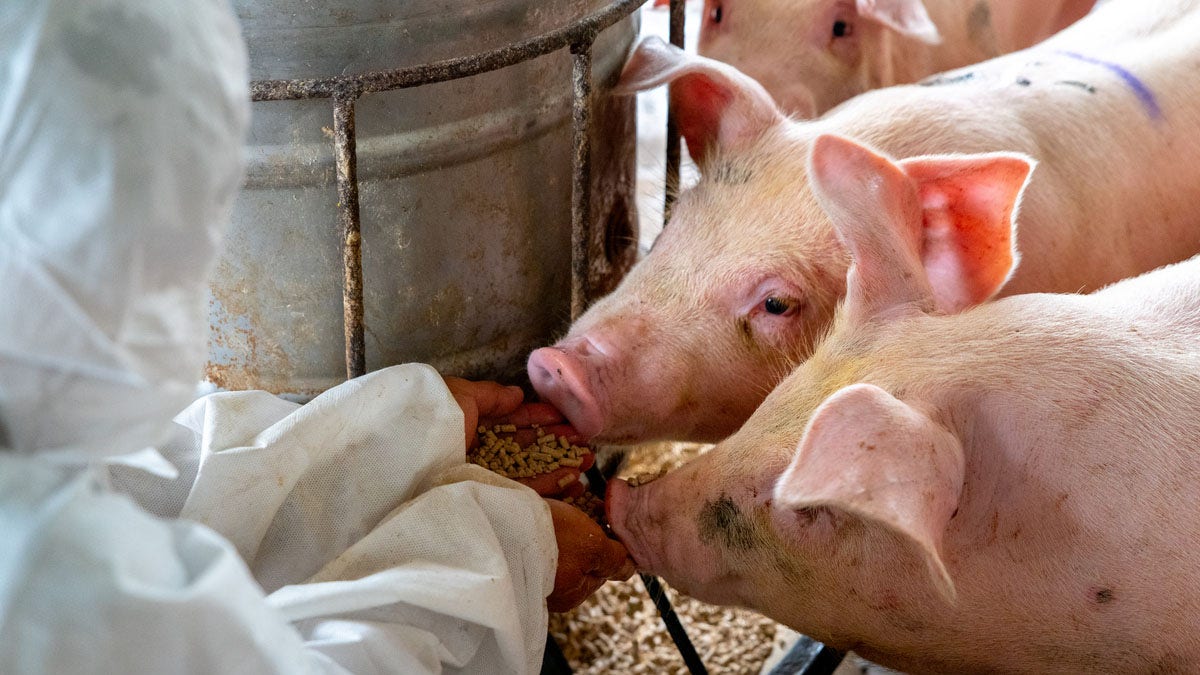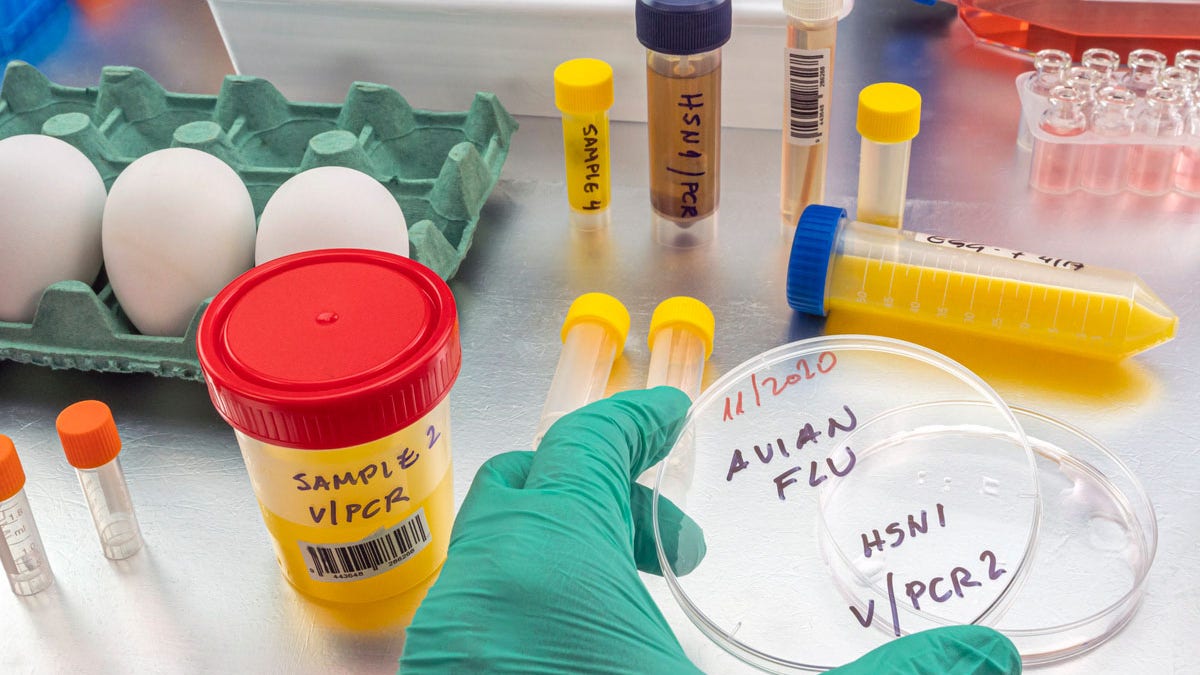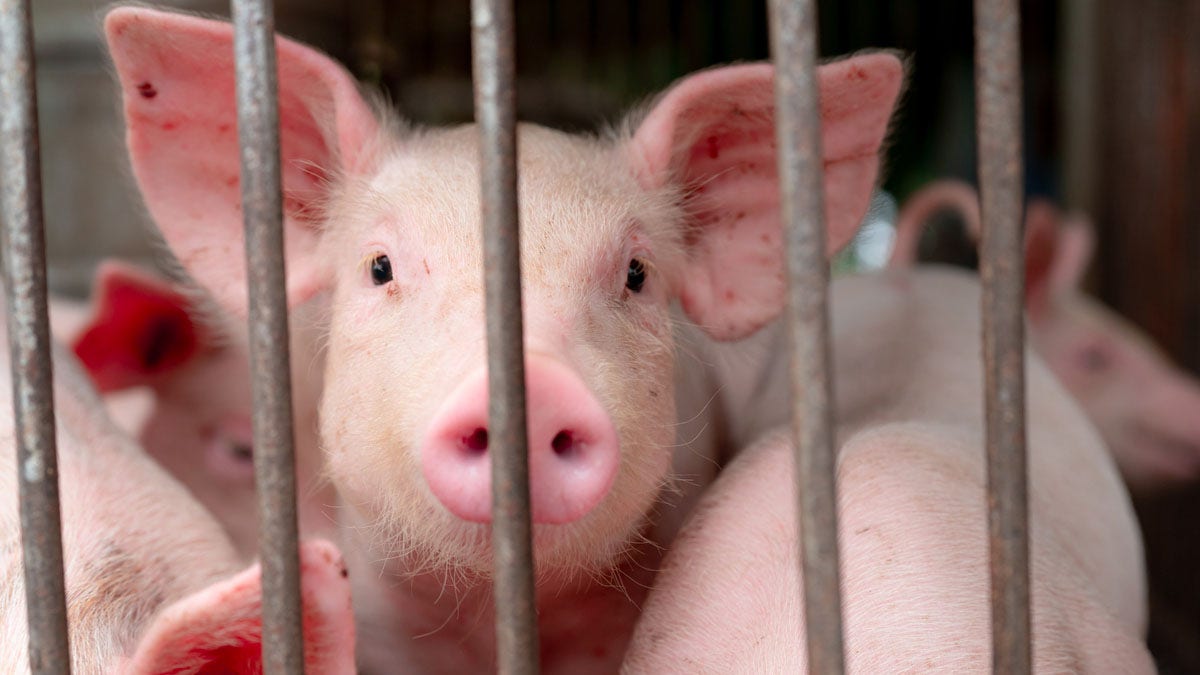A pig in Oregon has tested positive for H5N1 bird flu, according to a Wednesday announcement from the U.S. Department of Agriculture (USDA).
The infected pig was from a backyard farming operation that had a “mix of poultry and livestock,” the press release stated.
The USDA National Veterinary Services Laboratories confirmed that this was the “first detection of H5N1 in swine” in the U.S.TUBERCULOSIS HAS OVERTAKEN COVID AS WORLD’S DEADLIEST INFECTIOUS DISEASE
“The livestock and poultry on this farm shared water sources, housing and equipment; in other states, this combination has enabled transmission between species,” the release noted.

The infected pig did not display symptoms of illness, but was tested — along with four other swine — out of “an abundance of caution” after other animals on the farm tested positive.
Out of the other five pigs tested, two were negative and two still have pending results.“There is no concern about the safety of the nation’s pork supply as a result of this finding.”
“This farm is a non-commercial operation, and the animals were not intended for the commercial food supply,” the USDA stated.
LASSA FEVER DEATH REPORTED IN MIDWESTERN STATE, CONTACT TRACING BEGINS
“There is no concern about the safety of the nation’s pork supply as a result of this finding.”
The farm has been placed under quarantine to prevent further spread of bird flu, and the other animals are being monitored, per the USDA.
Doctors weigh in
Dr. Marc Siegel, clinical professor of medicine at NYU Langone Health and Fox News Senior Medical Analyst, noted that cattle are “definitely now a reservoir” for H5N1.
“A solo pig isn’t concerning except for two things — how many more have it that we don’t know about, and that pigs are a mixing vessel for flu,” he told Fox News Digital.

The infected pig (not pictured) was from a backyard farming operation that had a “mix of poultry and livestock,” the press release stated. (iStock)
“There can be several different kinds of flu in swine at any given time, and they can exchange genetic material, creating new strains,” the doctor cautioned.
The 2009 H1N1 pandemic, though “mild by pandemic standards,” involved a swine flu, Siegel noted.
Added the doctor, “Continued spread in the pig population would concern me.”
E. COLI OUTBREAK LINKED TO MCDONALD’S BURGERS: HOW TO SPOT THE SYMPTOMS
Dr. Benjamin Anderson, PhD, assistant professor in the Department of Environmental and Global Health at the University of Florida, noted that while this appears to be an isolated event, there is still “some cause for concern.”
The doctor echoed Siegel’s concern that swine are a known “mixing vessel” for influenza A viruses, “as they are able to be infected by avian and human influenza virus strains.”

“There can be several different kinds of flu in swine at any given time, and they can exchange genetic material, creating new strains,” a doctor warned. (iStock)
“If H5N1, an avian influenza virus, were to regularly transmit among pigs, the greatest concern is that the genetic material from other influenza virus strains circulating in pigs may recombine with it to make a new progeny virus that is more transmissible to humans,” Anderson told Fox News Digital.
The fact that all five of the pigs at the farm were not clinically ill is also concerning when it comes to surveillance, according to the doctor.
“It’s abundantly clear we have a serious H5N1 problem in the U.S. that isn’t going away anytime soon.”








